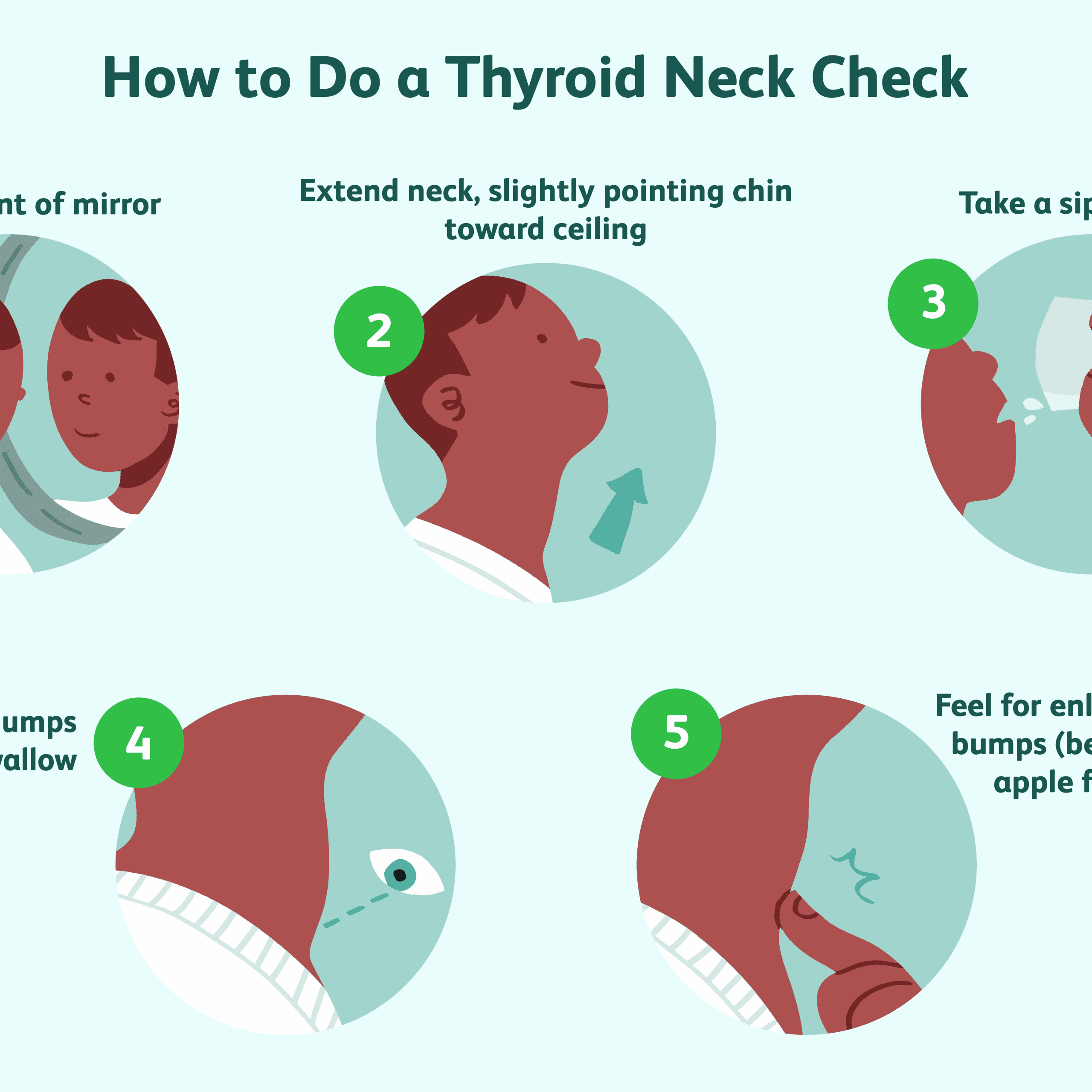Healthconfirm Hormone Vitality Complete+
HealthConfirm Hormone Vitality Complete+ measures your DHEA-S, cortisol, progesterone, testosterone, and estradiol levels. Checking these hormones can give you valuable information about your fertility status, whether youre getting close to menopause, or whether you might have a medical condition that needs treatment.
HealthConfirm uses saliva samples to check your hormone levels, so your kit will come with collection tubes and other supplies to ensure its easy to collect the right amount of saliva. The company also offers free shipping both ways, so theres no need to pay extra to send your samples to the laboratory.
When youre ready to check out on the HealthConfirm website, you can use a credit or debit card to pay for your order. To ensure test accuracy, HealthConfirm uses only CLIA-certified labs to process its hormone tests. The test kits have also been cleared by the FDA to ensure a high level of quality. You can access your results via a private online dashboard within a few days of mailing your sample. HealthConfirm includes physician support in the price of its hormone testing kits, ensuring that you have an opportunity to learn more about what the results mean for your health. HealthConfirm doesnt accept insurance.
Cost: $219
Recommended Reading: Does Thyroid Cancer Require Chemotherapy
The Role Of Thyroid Function Tests
Thyroid function testing can be used in several ways, including:
- Diagnosis this testing aims to find the cause of symptoms. Thyroid function testing can reveal whether the thyroid gland is functioning normally or abnormally and what specific disorder you may have.
- Screening this is testing for disease in the absence of symptoms. All newborns in the U.S. are routinely screened for an underactive thyroid. Some adults may also be screened for thyroid disorders, although not all experts agree that this is beneficial.
- Monitoring thyroid blood tests provide valuable information about whether treatment for thyroid disorders is working as it should or if it needs adjustment.
How Do You Check Your Thyroid Levels
Specific Thyroid Concerns
Tests that measure both TSH and T4 can be used together to screen for and help diagnose thyroid conditions, including hypothyroidism and hyperthyroidism .2
Female Health and Fertility
Women are five to eight times more likely than men to have thyroid problems. Hypothyroidism is a leading cause of difficulty in achieving and maintaining pregnancy.2
Proactive Prevention
Undiagnosed thyroid disease may put patients at risk for certain serious conditions such as cardiovascular diseases, osteoporosis, and infertility. Most thyroid conditions can be managed with medication.2
References
Don’t Miss: Thyroid Eye Disease Bulging Eyes
Normal And Abnormal Tsh Ranges
-
0.4 mU/L to 4.0 mU/L is considered the , and people who have a normally functioning thyroid gland usually fall within this range.
-
If TSH measures more than 4.0 mU/L, a second test is performed to verify the results. TSH of more than 4.0/mU/L with a low T4 level indicates hypothyroidism.
-
If your TSH is more than 4.0 mU/L and your T4 level is normal, this may prompt your physician to test your serum anti-thyroid peroxidase antibodies. When these antibodies are present, it may indicate an autoimmune thyroid disorder, which is a risk factor for developing hypothyroidism. If you have these antibodies, your doctor will most likely perform a TSH test at least once per year.
An easy way to remember how the thyroid worksthink about supply and demand. As the T4 level falls, the TSH rises. As the T4 level rises, the TSH falls. However, not everyone with hypothyroidism has elevated levels of TSH.
If your pituitary gland is not working properly, it may not send out normal TSH amountsand if this is the casethe thyroid may be healthy. However, if the amount of TSH is off, the thyroid wont make the right amount of T4. This is rare and is known as secondary or central hypothyroidism.
Read Also: Thyroid Peroxidase Antibodies Normal Range
Your Lymph Nodes Are Swollen

Because people may associate cancer symptoms with a single lump, they might not realize that swollen lymph nodes in the neck can also be a sign of thyroid cancer.
Swollen lymph nodes usually occur as a result of infection from bacteria or viruses, the Mayo Clinic says. However, swollen lymph nodes in the neck can be a symptom of thyroid cancer as well as other serious conditions.
For more health news sent directly to your inbox, .
Also Check: Ringing In Ears Thyroid Cancer
Don’t Miss: Thyroid And Adrenal Support Supplements
What Are Thyroid Blood Tests And Why Are They Taken
Thyroid blood tests are used to tell if your thyroid gland is functioning properly by measuring the amount of thyroid hormones in your blood. They are done by withdrawing blood from a vein in your arm. These blood tests help to diagnose thyroid diseases.
The thyroid is a butterfly-shaped gland located in the front part of your neck. Its job is to produce thyroid hormones, which travel through your bloodstream and regulate many aspects of your bodys metabolism, including temperature, weight, and energy.
Thyroid blood tests show if you have:
- Hyperthyroidism: Overactive thyroid producing more thyroid hormones than your body needs. Hyperthyroidism speeds up your metabolism, which can cause weight loss, rapid heartbeat, insomnia, puffiness around the eyes, anxiety and other symptoms. The most common cause of hyperthyroidism is Graves disease.
- Hypothyroidism: Underactive thyroid producing too few thyroid hormones. Hypothyroidism slows down your metabolism, which can cause weight gain, menstrual irregularity, dry and puffy skin, fatigue and other symptoms. The most common cause of hypothyroidism is Hashimotos disease.
Thyroid blood tests are used to diagnose thyroid disorders associated with hyper- or hypothyroidism. These include:
What Blood Tests Do Doctors Use To Check Thyroid Function
Doctors may order one or more blood tests to check your thyroid function. Tests may include thyroid stimulating hormone , T4, T3, and thyroid antibody tests.
For these tests, a health care professional will draw blood from your arm and send it to a lab for testing. Your doctor will talk to you about your test results.
Also Check: Natural Ways To Help Thyroid
Types Of Thyroid Function Tests
The purpose of thyroid blood tests is to measure the thyroid gland’s function. This is done by looking at hormones and other substances produced by the thyroid gland and organs that control thyroid function.
A single test offers helpful information about your thyroid health, but it usually takes more than one test to get a complete picture.
What Does A High Tsh Mean
What can happen if the TSH level is too high? If a TSH level is too high, it may be a sign of hypothyroidism. Here are some of the symptoms of hypothyroidism:
- Enlarged thyroid
There are two main forms of hypothyroidism, or an underactive thyroid:
Another form of secondary hypothyroidism, which some even call tertiary hypothyroidism, occurs when your hypothalamus releases too little thyrotropin. This issue with the hypothalamus can affect the pituitary gland, which in turn affects the thyroid gland.
What may be causing high TSH? Autoimmune diseases such as Hashimotos, toxin exposure, or even food allergies may be causing high TSH levels, which is due to low thyroid hormone levels and hypothyroidism.
Recommended Reading: What Is The Difference Between Np Thyroid And Armour Thyroid
How Does The Thyroid Gland Function
The major thyroid hormone secreted by the thyroid gland is thyroxine, also called T4 because it contains four iodine atoms. To exert its effects, T4 is converted to triiodothyronine by the removal of an iodine atom. This occurs mainly in the liver and in certain tissues where T3 acts, such as in the brain. The amount of T4 produced by the thyroid gland is controlled by another hormone, which is made in the pituitary gland located at the base of the brain, called thyroid stimulating hormone . The amount of TSH that the pituitary sends into the bloodstream depends on the amount of T4 that the pituitary sees. If the pituitary sees very little T4, then it produces more TSH to tell the thyroid gland to produce more T4. Once the T4 in the bloodstream goes above a certain level, the pituitarys production of TSH is shut off. In fact, the thyroid and pituitary act in many ways like a heater and a thermostat. When the heater is off and it becomes cold, the thermostat reads the temperature and turns on the heater. When the heat rises to an appropriate level, the thermostat senses this and turns off the heater. Thus, the thyroid and the pituitary, like a heater and thermostat, turn on and off. This is illustrated in the figure below.
Why Does My Throat Feel Blocked
The most common causes of globus pharyngeus are anxiety and gastroesophageal reflux disease , a form of acid reflux that causes the stomachs contents to travel back up the food pipe and sometimes into the throat. This can result in muscle spasms that trigger feelings of an object caught in the throat.
Also Check: Can Thyroid Make Your Eyes Pop Out
What Is The Thyroid
The thyroid is a small below the skin and muscles at the front of the neck, at the spot where a bow tie would rest. It makes two types of thyroid hormones: T3 and T4 . It helps the body do many things, such as get energy from food, grow, and go through .
The pituitary is a pea-sized gland at the bottom of the brain that makes thyroid stimulating hormone . TSH triggers the thyroid to make more thyroid hormone. The pituitary gland and the thyroid gland send messages back and forth to each other about how much hormone to make to keep the levels normal.
Knowing When To Check Your Thyroid

Don’t Miss: No Specs Thyroid Eye Disease
When Should I Get This Test
Consider getting a thyroid panel if you feel symptoms of hyperthyroidism or hypothyroidism. The tricky thing is the symptoms are varied and can be easily overlooked.
Common signs of an overactive thyroid:
- Nervousness, anxiety, and irritability
- Loss of interest in sex
Symptoms of an underactive thyroid include:
- Muscle aches and weakness
Another reason to get a thyroid test is if you are currently undergoing thyroid treatment and your doctor wants to determine whether it is effective or if your thyroid feels enlarged.
Costs Of Thyroid Testing
The cost of a thyroid test will vary by location and test type. Some clinics, usually community or nonprofit clinics, offer free or low-cost testing. Labs, clinics, and at-home testing companies may accept insurance to cover or lower your cost of testing. If you order you own thyroid lab tests, that could impact the cost of testing as well. As for how much blood work for thyroid costs without insurance, that depends on your testing facility.
A thyroid profile from Testing.com costs $54, while an expanded thyroid panel is $99. A more comprehensive thyroid panel is $189. Or if you prefer at-home testing, an at-home thyroid panel test kit is $189.
Read Also: Thyroid Cancer Centers Of Excellence
Radioactive Iodine Uptake Test
A radioactive iodine uptake test, also called a thyroid uptake test, can help check thyroid function and find the cause of hyperthyroidism. The thyroid takes up iodine from the blood to make thyroid hormones, which is why this is called an uptake test. Your health care professional may ask you to avoid foods high in iodine, such as kelp, or medicines containing iodine for a week before the test.
For this test, you will swallow a small amount of radioactive iodine in liquid or capsule form. During the test, you will sit in a chair while a technician places a device called a gamma probe in front of your neck, near your thyroid gland. The probe measures how much radioactive iodine your thyroid takes up from your blood. Measurements are often taken 4 to 6 hours after you swallow the radioactive iodine and again at 24 hours. The test takes only a few minutes.
If your thyroid collects a large amount of radioactive iodine, you may have Graves disease, or one or more nodules that make too much thyroid hormone. You may have this test at the same time as a thyroid scan.
Even though the test uses a small amount of radiation and is thought to be safe, you should not have this test if you are pregnant or breastfeeding.
What You Can Do
If you have definite symptoms of hypothyroidism, you should talk to your clinician about being tested. If your LDL cholesterol has been advancing or your weight has been creeping up unexplainably, you’ll want to discuss getting a test. If you’re 60 or older and generally healthy, it’s still a good idea to check with your doctor to see whether your medical history suggests you might benefit from testing.
Image: Thinkstock
Also Check: Gaia Herbs Thyroid Support Reviews
Other Factors Involved In Bbt Readings
If you have an infection or a fever, do not take the test as your temperature will naturally be skewed. Infections and fevers drive up body temperature and may cause a false negative. If you notice the temperature going up and downwith large gaps between days it is a sign of adrenal hormone dysregulation.
As you age, the temperature may be lower which could definitely have to do with the thyroid, but confirmative blood testing is always the best way to know for sure. If your temperature is high, yet you have hypothyroid symptoms or have been diagnosed with hypothyroidism it may be a sign of Hashimotos thyroiditis or autoimmunity against your thyroid.
In autoimmune based hypothyroidism, at times thyroid hormones can range and there is an increased amount of inflammation within the body. Both of these mechanisms can raise the BTT. High temperatures can also be a sign of anemia or low estrogen levels.
What Do Test Results For Thyroid Function Mean
Here are some examples of what your test results may mean:
-
If your TSH is high and your thyroid hormone levels are low, you could have primary hypothyroidism. This means that your thyroid isnt making enough thyroid hormone.
-
If your TSH is low and your thyroid hormone levels are high, then you could have hyperthyroidism. This means that your body is making too much thyroid hormone.
-
If your TSH and your thyroid hormone levels are low, you could have central hypothyroidism. This means that your pituitary gland isnt secreting enough hormones to support the functioning of your thyroid gland.
If you have symptoms that are suggestive of thyroid dysfunction, its important to be tested for it, says Dr. Chaudhry. Its very easy to make the diagnosis, and its very easy to treat if you have a problem.
Also Check: Braf Mutation In Thyroid Cancer
How Is Goiter Diagnosed
Your healthcare provider usually diagnoses goiter when they perform a physical examination and feel that you have an enlarged thyroid. However, the presence of a goiter indicates that theres an issue with your thyroid gland. Theyll need to figure out what the issue is.
Your provider can use several tests to diagnose and evaluate goiter, including the following:
Is Fasting Required For Thyroid Test

Usually,no special precautions including fasting need to be followed before taking a thyroid test. However, your pathologist can guide you better. For example, if you have to undergo some other health tests along with thyroid hormone levels, you may be asked to fast for 8-10 hours. Drinking water doesnt come under violation of fasting.
Recommended Reading: Armour Thyroid For Hashimoto’s
Using Btt To Look At Adrenal Function
The adrenals work to increase blood flow throughout the body as cortisol works with its cousin aldosterone, which are both made in the adrenal cortex. Cortisol helps to maintain blood sugar, while aldosterone helps to retain sodium and maintain blood pressure. When we retain more sodium, we also retain more water, which increases blood volume and blood pressure. When we retain less sodium, we also retain less water, which decreases blood volume and blood pressure.
When people have hypertension or high blood pressure, they often take an angiotensin-converting enzyme inhibitor to lower aldosterone levels and therefore lower blood pressure. When the signaling process in the body, called the hypothalamic-pituitary-adrenal axis is dysregulated, we can end up with either high or low cortisol/aldosterone levels.
Low blood pressure is a common symptom for an individual with low cortisol, while high blood pressure is common for individuals with high cortisol. Other symptoms associated with HPA or adrenal dysfunction I discuss in detail in this article.